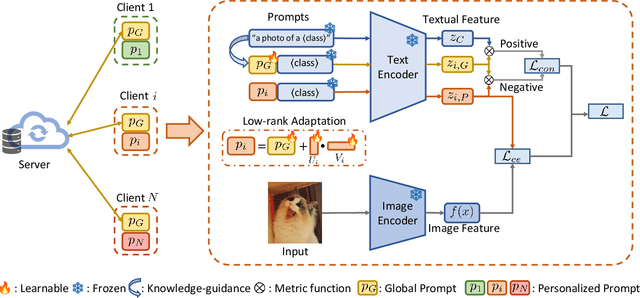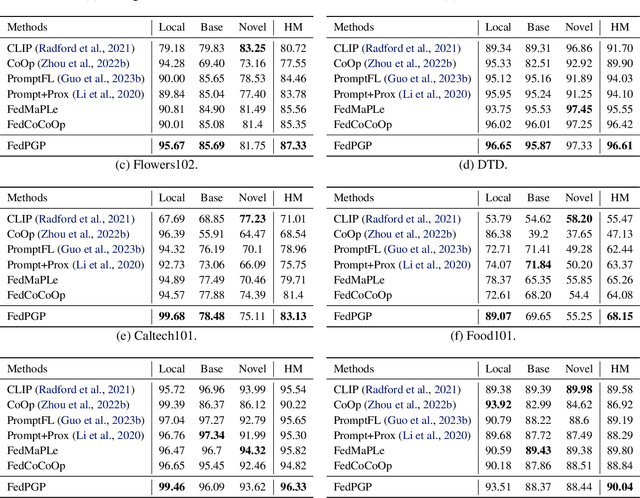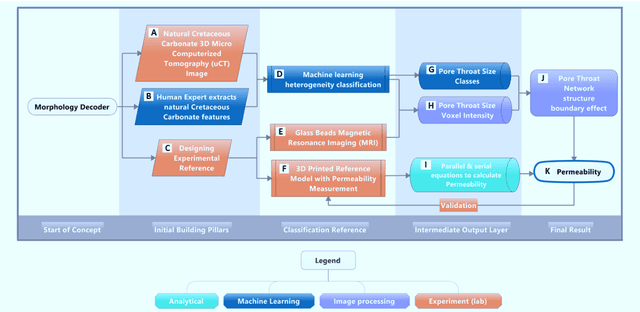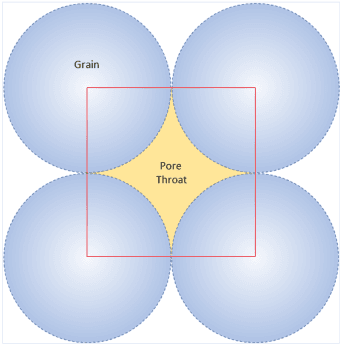Hongxia Li
Hybrid second-order gradient histogram based global low-rank sparse regression for robust face recognition
Nov 15, 2025Abstract:Low-rank sparse regression models have been widely adopted in face recognition due to their robustness against occlusion and illumination variations. However, existing methods often suffer from insufficient feature representation and limited modeling of structured corruption across samples. To address these issues, this paper proposes a Hybrid second-order gradient Histogram based Global Low-Rank Sparse Regression (H2H-GLRSR) model. First, we propose the Histogram of Oriented Hessian (HOH) to capture second-order geometric characteristics such as curvature and ridge patterns. By fusing HOH and first-order gradient histograms, we construct a unified local descriptor, termed the Hybrid second-order gradient Histogram (H2H), which enhances structural discriminability under challenging conditions. Subsequently, the H2H features are incorporated into an extended version of the Sparse Regularized Nuclear Norm based Matrix Regression (SR\_NMR) model, where a global low-rank constraint is imposed on the residual matrix to exploit cross-sample correlations in structured noise. The resulting H2H-GLRSR model achieves superior discrimination and robustness. Experimental results on benchmark datasets demonstrate that the proposed method significantly outperforms state-of-the-art regression-based classifiers in both recognition accuracy and computational efficiency.
Harmonizing Generalization and Personalization in Federated Prompt Learning
May 16, 2024



Abstract:Federated Prompt Learning (FPL) incorporates large pre-trained Vision-Language models (VLM) into federated learning through prompt tuning. The transferable representations and remarkable generalization capacity of VLM make them highly compatible with the integration of federated learning. Addressing data heterogeneity in federated learning requires personalization, but excessive focus on it across clients could compromise the model's ability to generalize effectively. To preserve the impressive generalization capability of VLM, it is crucial to strike a balance between personalization and generalization in FPL. To tackle this challenge, we proposed Federated Prompt Learning with CLIP Generalization and low-rank Personalization (FedPGP), which employs pre-trained CLIP to provide knowledge-guidance on the global prompt for improved generalization and incorporates a low-rank adaptation term to personalize the global prompt. Further, FedPGP integrates a prompt-wise contrastive loss to achieve knowledge guidance and personalized adaptation simultaneously, enabling a harmonious balance between personalization and generalization in FPL. We conduct extensive experiments on various datasets to explore base-to-novel generalization in both category-level and domain-level scenarios with heterogeneous data, showing the superiority of FedPGP in balancing generalization and personalization.
Global and Local Prompts Cooperation via Optimal Transport for Federated Learning
Feb 29, 2024Abstract:Prompt learning in pretrained visual-language models has shown remarkable flexibility across various downstream tasks. Leveraging its inherent lightweight nature, recent research attempted to integrate the powerful pretrained models into federated learning frameworks to simultaneously reduce communication costs and promote local training on insufficient data. Despite these efforts, current federated prompt learning methods lack specialized designs to systematically address severe data heterogeneities, e.g., data distribution with both label and feature shifts involved. To address this challenge, we present Federated Prompts Cooperation via Optimal Transport (FedOTP), which introduces efficient collaborative prompt learning strategies to capture diverse category traits on a per-client basis. Specifically, for each client, we learn a global prompt to extract consensus knowledge among clients, and a local prompt to capture client-specific category characteristics. Unbalanced Optimal Transport is then employed to align local visual features with these prompts, striking a balance between global consensus and local personalization. Extensive experiments on datasets with various types of heterogeneities have demonstrated that our FedOTP outperforms the state-of-the-art methods.
FedTP: Federated Learning by Transformer Personalization
Nov 03, 2022Abstract:Federated learning is an emerging learning paradigm where multiple clients collaboratively train a machine learning model in a privacy-preserving manner. Personalized federated learning extends this paradigm to overcome heterogeneity across clients by learning personalized models. Recently, there have been some initial attempts to apply Transformers to federated learning. However, the impacts of federated learning algorithms on self-attention have not yet been studied. This paper investigates this relationship and reveals that federated averaging algorithms actually have a negative impact on self-attention where there is data heterogeneity. These impacts limit the capabilities of the Transformer model in federated learning settings. Based on this, we propose FedTP, a novel Transformer-based federated learning framework that learns personalized self-attention for each client while aggregating the other parameters among the clients. Instead of using a vanilla personalization mechanism that maintains personalized self-attention layers of each client locally, we develop a learn-to-personalize mechanism to further encourage the cooperation among clients and to increase the scablability and generalization of FedTP. Specifically, the learn-to-personalize is realized by learning a hypernetwork on the server that outputs the personalized projection matrices of self-attention layers to generate client-wise queries, keys and values. Furthermore, we present the generalization bound for FedTP with the learn-to-personalize mechanism. Notably, FedTP offers a convenient environment for performing a range of image and language tasks using the same federated network architecture - all of which benefit from Transformer personalization. Extensive experiments verify that FedTP with the learn-to-personalize mechanism yields state-of-the-art performance in non-IID scenarios. Our code is available online.
Morphology Decoder: A Machine Learning Guided 3D Vision Quantifying Heterogenous Rock Permeability for Planetary Surveillance and Robotic Functions
Nov 26, 2021



Abstract:Permeability has a dominant influence on the flow properties of a natural fluid. Lattice Boltzmann simulator determines permeability from the nano and micropore network. The simulator holds millions of flow dynamics calculations with its accumulated errors and high consumption of computing power. To efficiently and consistently predict permeability, we propose a morphology decoder, a parallel and serial flow reconstruction of machine learning segmented heterogeneous Cretaceous texture from 3D micro computerized tomography and nuclear magnetic resonance images. For 3D vision, we introduce controllable-measurable-volume as new supervised segmentation, in which a unique set of voxel intensity corresponds to grain and pore throat sizes. The morphology decoder demarks and aggregates the morphologies boundaries in a novel way to produce permeability. Morphology decoder method consists of five novel processes, which describes in this paper, these novel processes are: (1) Geometrical 3D Permeability, (2) Machine Learning guided 3D Properties Recognition of Rock Morphology, (3) 3D Image Properties Integration Model for Permeability, (4) MRI Permeability Imager, and (5) Morphology Decoder (the process that integrates the other four novel processes).
 Add to Chrome
Add to Chrome Add to Firefox
Add to Firefox Add to Edge
Add to Edge